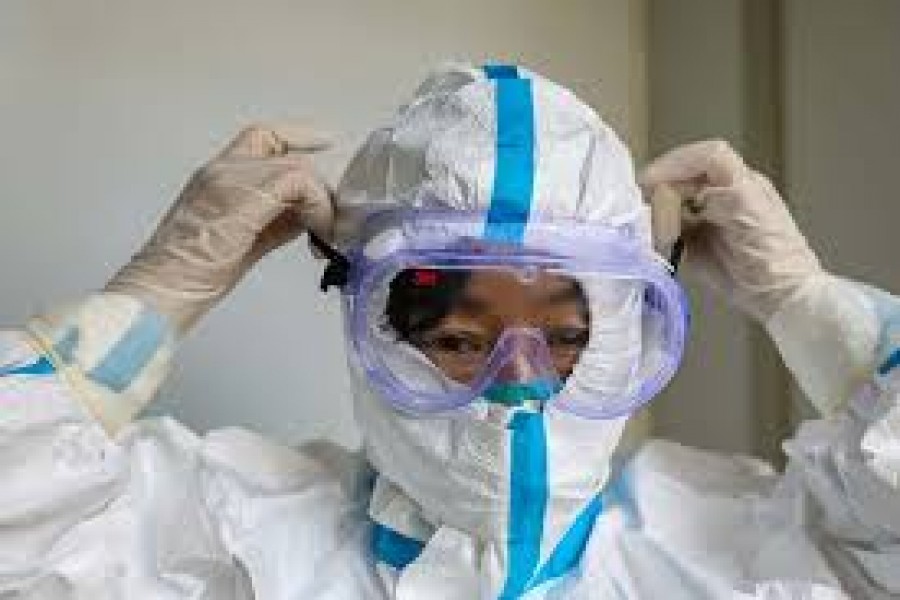When the Covid-19 pandemic spread to other nations of the world from China, the mass media of Bangladesh were quite vocal in sounding alarm bells that the country was ill-prepared to deal with the outbreak. Still, for a long time the government's response remained stuck in words, repeatedly claiming sufficient preparedness for tackling it. Eventually, this claim has not proved to be true. On the 100th day of infections, it was found that the infection rate here surpassed even those of neighbouring India and Pakistan.
In this backdrop, the anti-corruption watchdog Transparency International, Bangladesh (TIB) has found widespread deficiencies in governance indicators relating to measures taken by the Bangladesh government for tackling the pandemic, despite getting sufficient time for taking coordinated measures in advance. The TIB's most recent report on the handling of Covid-19 seems to corroborate the views shared by many observers. According to the TIB, the corona crisis exacerbated due to deficits in planning and execution as well as confusing-cum-contradictory steps taken by the authorities.
Besides, weaknesses in the healthcare sector due to longstanding irregularities and mismanagement, lack of good governance and insufficient budgetary allocations have become evident during the crisis. TIB published this report titled 'Challenges of Good Governance in Tackling the Coronavirus Crisis' on the 100th day of detecting Covid-19 case in Bangladesh. It has also put forward some recommendations for overcoming the challenges.
The governance indicators used by TIB were: rule of law, swiftness of response, capacity and effectiveness, participation and coordination, accountability, transparency, irregularities and corruption. It highlighted shortcomings in adhering to relevant laws while tackling the pandemic. For example, neither the 'Disaster Management Act, 2012' nor the 'Infection Diseases (Prevention, Control and Eradication) Act, 2018' were properly applied.
Although a notification was issued on March 23 by incorporating Covid-19 into relevant law as an infectious disease, community transmission of the disease had already started in the country by then. Instead of labelling Bangladesh as 'infected territory' or 'disaster-stricken area', the health department declared the country then as a 'risk-prone' one. This, in turn, weakened the basis for application of law and execution of measures against transgressions at the field level.
The TIB's accusations included dilly-dally tactics by relevant authorities in responding to the crisis, especially procrastination in planning and formation of committees, delays in controlling arrival of people from abroad and their proper screening in order to curb local transmission, failure in controlling domestic movements and gatherings of people, inordinate delays in preparation and management of treatment facilities-cum-laboratories, and weaknesses in preparation and delivery of social safety net assistance. All these delays and failures helped the virus gradually spread across the country.
Regrettably, the percentage of population tested for novel coronavirus in Bangladesh (0.29 per cent) is the second-lowest in South Asia, and testing efforts have mostly remained centred in capital Dhaka. Besides, maximum capacity utilisation has not been possible due to scarcity of medical technologists, out-of-order machines, infected manpower and lapses in coordination. It is astonishing that common clinical services were hampered in 53 per cent of the hospitals and many health workers were getting infected due to low quality personal protective equipment (PPE) in 71 per cent hospitals. The TIB study showed that around 25 per cent physicians and 34 per cent nurses plus other health workers did not receive any PPE from the Central Medicine Storage Depot of the government.
The report highlighted the irregularities and corruption resorted to while tackling the crisis. Complaints of low quality PPE supplies were received from 59 per cent of the hospitals. There were allegations of negligence of duty by health workers in 23 per cent hospitals. It was alleged that private testing labs were charging additional fees ranging from Tk 1,000 to Tk 1,500 above those fixed by the government. Furthermore, 'Corona-negative' certificates were being illegally sold. Lack of transparency and accountability of the government while dealing with the crisis have also been exposed by the report. These include corruption in procurement of N-95 masks and low-quality PCR testing machines. But no steps were taken against those involved. Instead, disciplinary measures were taken against four physicians for raising questions about supplied PPEs including masks.
Instead of bringing the perpetrators to book, corruption was encouraged by taking actions against those who divulged the acts of corruption. Apart from dearth of information related to the outbreak, restrictions have been imposed on publishing those, thereby severely curtailing the constitutional rights of freedom of speech and opinion. The media professionals have faced obstructions, harassments and tortures for reporting thefts, irregularities and embezzlements in relief distribution at the grassroots. As many as 67 cases were lodged against them and cases were filed against 37 journalists under the controversial Digital Security Act 2018. A total 88 people including journalists and cartoonists were arrested in 79 incidents on charges of spreading 'rumours' and 'false information' about Covid-19.
The TIB has put forward 15 recommendations for tackling the Covid-19 crisis based on findings from the study. Notable among these are: testing facilities should be expanded at the district level and the number of tests should be increased through optimum utilisation of available machines and manpower; budgetary allocations for the health sector should be enhanced to 5.0 per cent of GDP (gross domestic product) for raising overall healthcare capacity at the district level; proper screening and trial management should be ensured in all hospitals alongside ensuring quality PPEs for all levels of healthcare workers; all private hospitals should be engaged in the treatment of patients suffering from Covid-19 alongside other diseases; lists of those receiving relief and social security benefits should be updated and published on websites; access to and free flow of information should be ensured in order to uphold transparency and accountability; and appropriate punishments should be meted out to the suspended public representatives involved in relief-related grafts. The authorities concerned should pay heed to these suggestions for improving the situation.
Dr. Helal Uddin Ahmed is a retired Additional Secretary and former Editor of Bangladesh Quarterly.


